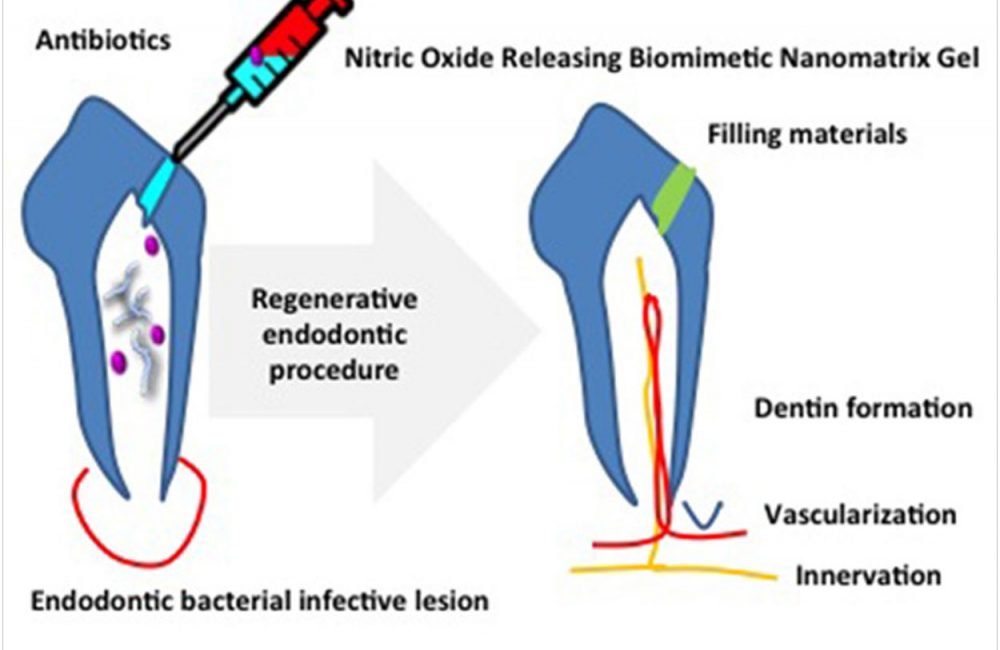
Instead of performing a root canal, imagine bringing a dying tooth back to life. It may be possible, according to research by Sagar Kaushik. This grad student at the University of Alabama at Birmingham is developing a nanogel formula that roots out endodontic infections and encourages the recovering tooth to rejuvenate itself, transforming care from painful surgery to a single injection.
The treatment comprises 2 antibiotics, ciprofloxacin and metronidazole, along with nitric oxide all encapsulated in an injectable, self-assembled biomimetic nanomatrix gel. Nanogels can be injected directly into a target and formulated to release medications throughout a specific timeframe. Kaushik’s formula defeats common endodontic infections with low concentrations of antibiotics.
The treatment also doesn’t need a third antibiotic, minocycline, that’s used in current therapies though it often stains teeth and causes other side effects. Additionally, the gel mimics the natural extracellular matrix to encourage the formation of new blood vessels in formerly infected pulp tissue.
“The reason a tooth dies is due to a lack of blood vessels,” said Kaushik, a graduate of the university’s biomedical engineering program and a current master’s student in epidemiology at the school of public health. “By removing the infection and recruiting new blood vessels to the tooth, we believe we can rejuvenate it.”
Kaushik and his research team are now evaluating the gel’s effectiveness on clinical samples from endodontic patients at the university’s school of dentistry. They also are beginning pilot animal studies and are characterizing the gel for long-term release. Current formulations have been limited to 4 to 6 weeks, but the researchers are working to extend that the 5 or 6 months necessary for human studies.
The treatment was inspired by Ho-Wook Jun, PhD, an associate professor at the school’s department of biomedical engineering who developed nanogels that can regrow bone tissue after fractures and recruit blood vessels to damaged areas of the heart, and by Kyounga Cheon, DMD, of the department of pediatric dentistry who has developed further applications to treat endodontic infection.
“I believe this will help create a more well-rounded approach to addressing endodontic infections,” Kaushik said.
Related Articles
Need Root Canal Advice? Look Beyond YouTube
Nanodiamonds Improve Root Canal Therapy
Root Regeneration May Depend on Proteins












